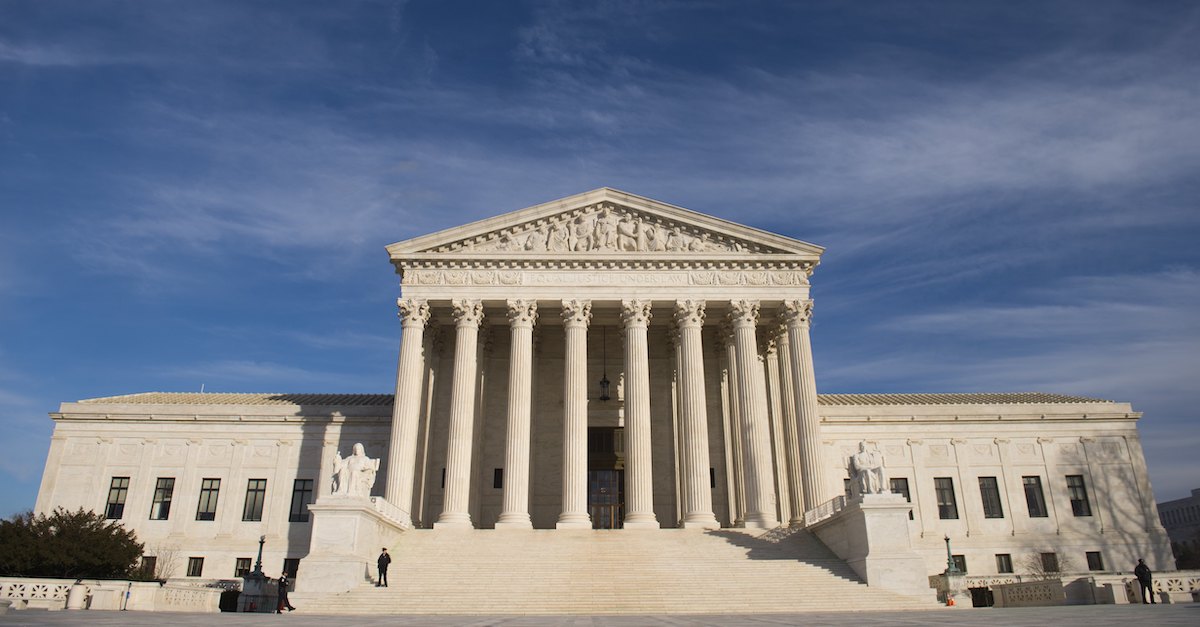
As this year’s Supreme Court term draws to a close, the New York Immigration Coalition (NYIC)– challengers in the highly publicized case over the Trump Administration’s decision to add a citizenship question to the 2020 Census–asked the Court on Wednesday to push back their expected ruling due to the discovery of new evidence.
The request to postpone the Court’s ruling stems from the discovery in late May of new documents from the estate of recently deceased Republican operative Thomas Hofeller. As Law&Crime previously reported, Hofeller notoriously specialized in gerrymandering maps to ensure Republican advantages. The documents purportedly showed that Hofeller specifically orchestrated the addition of the citizenship census question to achieve similar advantages.
In particular, plaintiffs asked for limited remand to the lower court if the Supreme Court decides not to uphold the lower court decision. U.S. District Court Jesse Furman ruled in January that the government violated administrative procedures in adding the citizenship question. He blocked the inclusion of the question in the 2020 Census, calling the addition “arbitrary and capricious.” The government appealed to the Supreme Court and oral arguments were heard in April.
After the Hofeller evidence came to light, Furman acknowledged the seriousness of it, while also saying his court lacked jurisdiction. In other words, the ball was in SCOTUS’s court — unless SCOTUS decided otherwise. From the latest motion [citations removed]:
Last week, the district court acknowledged that Plaintiffs’ allegations are “serious” after reviewing Plaintiffs’ motion for an order to show cause and Defendants’ response. But the district court concluded that—“absent some mandate from the Supreme Court itself”—the court “lack[s] jurisdiction” to address their relevance to the merits or to permit further merits-related discovery. It directed Plaintiffs to file a motion for sanctions and set briefing to finish August 2, 2019.
For the reasons previously presented, this Court should affirm. But if not, the Court should order a limited remand to allow “exploration of where the truth lies” in light of new evidence that “flatly contradict[s] the tale [that] unfolded … in the District Court.” Such a limited remand would permit an inquiry and fact-finding into whether Dr. Hofeller’s partisan and racially discriminatory motives for adding a citizenship question were shared by, or should otherwise be imputed to, relevant Commerce officials, including the Secretary.
The DOJ, for its part, responded to this new evidence by calling it an eleventh-hour “conspiracy theory.”
The motion, however, claimed that Hofeller “concluded in a 2015 study that adding a citizenship question to the 2020 census ‘would clearly be a disadvantage to the Democrats’ and ‘advantageous to Republicans and non-Hispanic Whites’ in redistricting.” Plaintiffs argued that a letter the DOJ sent to the Department of Commerce in Dec. 2017 “adopted the same” voting-rights “rationale and bears striking similarities to Dr. Hofeller’s 2015 study stating that a citizenship question on the Census was essential to advantaging Republicans and white voters.”
Thus, the challengers said that if the Supreme Court decides not to uphold Furman’s ruling it should allow limited remand.
“If this Court does not affirm, it should issue a limited time-bound remand to the district court to engage in expedited fact-finding and, if appropriate, to make supplemental findings on these issues to the extent that they implicate the ultimate merits of this appeal,” plaintiffs said.
While acknowledging that the government’s request to have the case decided by the end of June is pertinent to getting the 2020 census finalized, the challengers emphasized the significance of the justices’ decision in the case.
“Given the massive and lasting consequences of the once-in-a-decade census, it is imperative that this case be decided on the basis of a complete and accurate record,” they concluded.
[Image via SAUL LOEB/AFP/Getty Images]